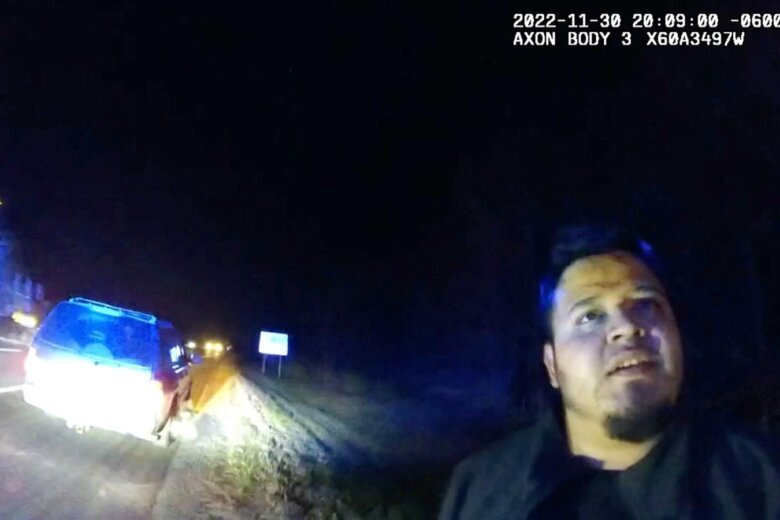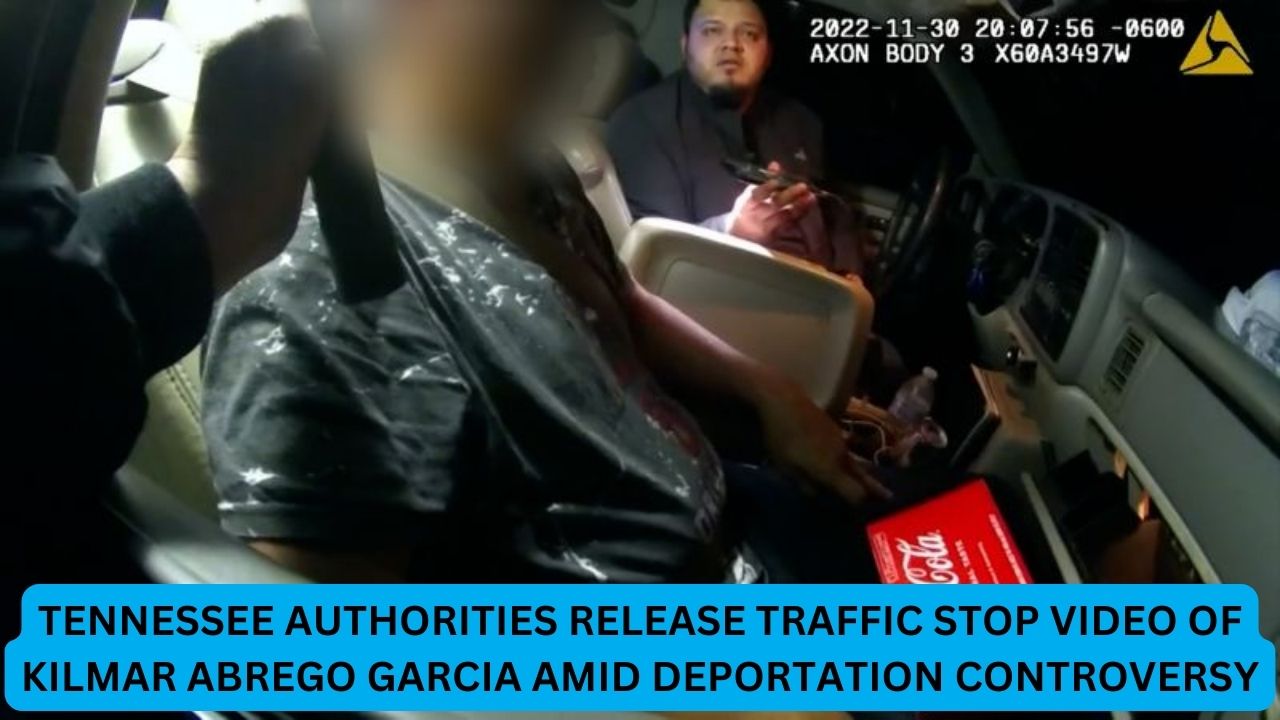In a development that has stirred national debate, Tennessee authorities have released body camera footage from a 2022 traffic stop involving Kilmar Abrego Garcia, a Salvadoran national and Maryland construction worker.
The video, which officials cite as evidence of alleged gang affiliations, has come under scrutiny amid legal rulings that claim his deportation was unlawful. The case has ignited legal, political, and human rights discussions surrounding U.S. immigration enforcement practices.
Details of the Traffic Stop
The traffic stop took place on November 30, 2022, on Interstate 40 near Cookeville, Tennessee, where Tennessee Highway Patrol troopers pulled over Abrego Garcia for speeding. He was driving a Chevrolet Suburban carrying eight passengers, a detail that aroused suspicion among officers.
When asked for identification, Garcia presented an expired Maryland driver’s license. The vehicle, which was registered to Jose Ramon Hernandez-Reyes, a previously deported human smuggler, raised further concerns. Troopers also noted that none of the passengers carried luggage, and approximately $1,400 in cash was found inside the vehicle.
Despite the apparent red flags, troopers issued only a warning for the expired license and did not arrest Garcia or any of the passengers at the time. The footage, now public, shows the entire encounter, and it has become a pivotal piece of evidence in the broader debate over Garcia’s immigration status.
Watch the full video from NY Post
The Deportation and Controversy
Garcia was deported to El Salvador in March 2025, a move that sparked outrage from immigration advocates. His deportation came despite a 2019 U.S. immigration court ruling that prohibited his removal due to credible fear of persecution by gangs in El Salvador. Legal experts argue that deporting Garcia violated that binding court order.
The Trump administration justified the action by alleging ties between Garcia and the MS-13 gang, citing visual indicators such as tattoos and his associations with known gang members. However, Garcia was never charged with a crime in the United States, and these accusations were based on unverified informant testimony.
Legal experts and advocates claim Garcia was denied due process, including communication with legal counsel or his family. His attorney, Simon Sandoval-Moshenberg, has stated that Garcia’s deportation was carried out in secrecy and haste, breaching both legal and ethical standards.

Legal Fallout and Federal Response
In the weeks following Garcia’s deportation, federal courts intervened. A ruling by the U.S. Supreme Court confirmed that the deportation violated the existing legal order and demanded that the federal government facilitate Garcia’s return to the United States.
The ruling has placed additional pressure on the Trump administration, with federal judges demanding sworn testimony from officials involved in the deportation process. President Trump acknowledged the error but defended the administration’s position, claiming public safety concerns justified the deportation.
Read the Supreme Court ruling coverage – Washington Post
Impact on Garcia’s Family
Garcia’s wife, Jennifer Vasquez Sura, a U.S. citizen, has publicly advocated for her husband’s return. She maintains that Garcia was a working-class individual who occasionally helped transport coworkers to and from job sites. Since his deportation, she and their three children have had no contact with him, and his current condition inside El Salvador’s CECOT mega-prison remains unknown.
The incident has reignited conversations on how immigration policies intersect with due process, family unity, and constitutional rights. Critics argue that Garcia’s case reflects a dangerous precedent where individuals can be deported based on suspicions rather than concrete evidence or formal charges.
Broader Implications
The release of the video has raised questions about profiling, evidence-based deportation, and immigrant rights. Advocates point out that increasing reliance on associations or circumstantial elements—like car registration and cash in possession—can lead to wrongful actions.
This case also brings renewed attention to the legal protections in place under U.S. immigration law, including the right to remain when credible threats exist in a person’s country of origin.
For more on immigrant rights and deportation rules, visit the U.S. Citizenship and Immigration Services (USCIS) and American Civil Liberties Union (ACLU).
Conclusion
Kilmar Abrego Garcia’s story is a powerful reminder of the importance of due process, especially when lives are at stake. As legal proceedings continue and the U.S. government navigates its next steps, the spotlight remains on whether justice will be fully served in accordance with law, evidence, and human rights.
This article has been carefully fact-checked by our editorial team to ensure accuracy and eliminate any misleading information. We are committed to maintaining the highest standards of integrity in our content.

Outside of work, he enjoys playing chess, following cricket, and writing short stories. His commitment to integrity and in-depth analysis strengthens OTE News’ mission of providing trustworthy journalism.




